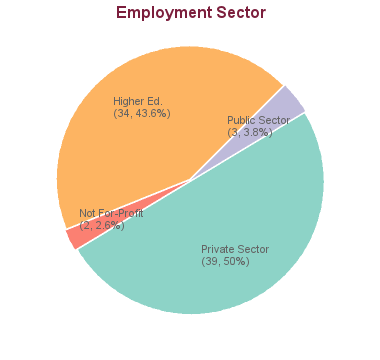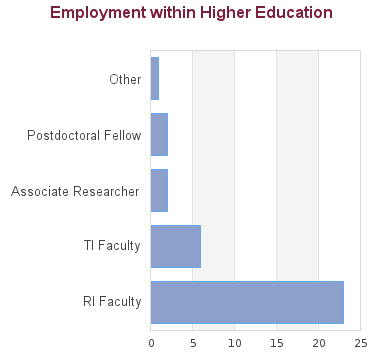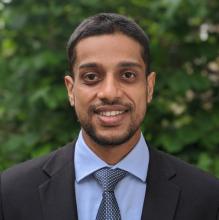Canadian Immigration Updates
Review details about the recently announced changes to study and work permits that apply to master’s and doctoral degree students. Read more
Overview
The thesis-based Doctor of Philosophy (Ph.D.) in Mechanical Engineering is an advanced research-based degree. The program offers students an opportunity to work at the highest level of research, under the supervision of a faculty member. Students complete their candidacy examination within 18 months and complete their doctoral dissertation research within three to four years. It is normal department practice to initially register students in the M.A.Sc. program, and to transfer them to the Ph.D. program upon completion of the M.A.Sc. (or earlier if recommended by the supervising faculty member).
Students taking their Ph.D. in Mechanical Engineering can select one of the below research areas:
- Applied Solid Mechanics
- Biomechanics and Medical Devices
- Computational Engineering
- Energy & Environment
- Fluid Mechanics
- Manufacturing Automation & Robotics
- Mechatronics & Instrumentation
- Naval Architecture & Marine Engineering
What makes the program unique?
With eight Research Chairs and almost every research faculty member holding a least one NSERC grant, we have one of the most active research programs in Canada and consistently produce industry and academic leaders.
UBC is ranked in the World’s Top 40 Universities by the Shanghai Jiao Tong University Institute of Higher Education and our Mechanical Engineering professors are recognized nationally and internationally as leaders in their fields.
We offer affordable, competitive tuition fees and extend a number of scholarships, awards, top-ups to external awards, entrance fellowships, Research Assistantships (RA's) and Teaching Assistantships (TA's) to our students.
Quick Facts
Program Enquiries
Contact the program
Admission Information & Requirements
1) Check Eligibility
Minimum Academic Requirements
The Faculty of Graduate and Postdoctoral Studies establishes the minimum admission requirements common to all applicants, usually a minimum overall average in the B+ range (76% at UBC). The graduate program that you are applying to may have additional requirements. Please review the specific requirements for applicants with credentials from institutions in:
Each program may set higher academic minimum requirements. Please review the program website carefully to understand the program requirements. Meeting the minimum requirements does not guarantee admission as it is a competitive process.
English Language Test
Applicants from a university outside Canada in which English is not the primary language of instruction must provide results of an English language proficiency examination as part of their application. Tests must have been taken within the last 24 months at the time of submission of your application.
Minimum requirements for the two most common English language proficiency tests to apply to this program are listed below:
TOEFL: Test of English as a Foreign Language - internet-based
Overall score requirement: 93
Reading
22
Writing
21
Speaking
21
Listening
22
IELTS: International English Language Testing System
Overall score requirement: 6.5
Reading
6.0
Writing
6.0
Speaking
6.0
Listening
6.0
Other Test Scores
Some programs require additional test scores such as the Graduate Record Examination (GRE) or the Graduate Management Test (GMAT). The requirements for this program are:
The GRE is optional.
2) Meet Deadlines
January 2026 Intake
Application Open Date
01 June 2025Canadian Applicants
International Applicants
3) Prepare Application
Transcripts
All applicants have to submit transcripts from all past post-secondary study. Document submission requirements depend on whether your institution of study is within Canada or outside of Canada.
Letters of Reference
A minimum of three references are required for application to graduate programs at UBC. References should be requested from individuals who are prepared to provide a report on your academic ability and qualifications.
Statement of Interest
Many programs require a statement of interest, sometimes called a "statement of intent", "description of research interests" or something similar.
Supervision
Students in research-based programs usually require a faculty member to function as their thesis supervisor. Please follow the instructions provided by each program whether applicants should contact faculty members.
Instructions regarding thesis supervisor contact for Doctor of Philosophy in Mechanical Engineering (PhD)
Citizenship Verification
Permanent Residents of Canada must provide a clear photocopy of both sides of the Permanent Resident card.
4) Apply Online
All applicants must complete an online application form and pay the application fee to be considered for admission to UBC.
Tuition & Financial Support
Tuition
| Fees | Canadian Citizen / Permanent Resident / Refugee / Diplomat | International |
|---|---|---|
| Application Fee | $116.25 | $168.25 |
| Tuition * | ||
| Installments per year | 3 | 3 |
| Tuition per installment | $1,875.34 | $3,294.66 |
| Tuition per year (plus annual increase, usually 2%-5%) | $5,626.02 | $9,883.98 |
| Int. Tuition Award (ITA) per year (if eligible) | $3,200.00 (-) | |
| Other Fees and Costs | ||
| Student Fees (yearly) | $1,144.10 (approx.) | |
| Costs of living | Estimate your costs of living with our interactive tool in order to start developing a financial plan for your graduate studies. | |
All fees for the year are subject to adjustment and UBC reserves the right to change any fees without notice at any time, including tuition and student fees. Tuition fees are reviewed annually by the UBC Board of Governors. In recent years, tuition increases have been 2% for continuing domestic students and between 2% and 5% for continuing international students. New students may see higher increases in tuition. Admitted students who defer their admission are subject to the potentially higher tuition fees for incoming students effective at the later program start date. In case of a discrepancy between this webpage and the UBC Calendar, the UBC Calendar entry will be held to be correct.
Financial Support
Applicants to UBC have access to a variety of funding options, including merit-based (i.e. based on your academic performance) and need-based (i.e. based on your financial situation) opportunities.
Program Funding Packages
From September 2024 all full-time students in UBC-Vancouver PhD programs will be provided with a funding package of at least $24,000 for each of the first four years of their PhD. The funding package may consist of any combination of internal or external awards, teaching-related work, research assistantships, and graduate academic assistantships. Please note that many graduate programs provide funding packages that are substantially greater than $24,000 per year. Please check with your prospective graduate program for specific details of the funding provided to its PhD students.
Average Funding
- 36 students received Teaching Assistantships. Average TA funding based on 36 students was $7,632.
- 53 students received Research Assistantships. Average RA funding based on 53 students was $21,011.
- 10 students received Academic Assistantships. Average AA funding based on 10 students was $960.
- 58 students received internal awards. Average internal award funding based on 58 students was $11,183.
- 3 students received external awards. Average external award funding based on 3 students was $28,889.
Review methodology
Scholarships & awards (merit-based funding)
All applicants are encouraged to review the awards listing to identify potential opportunities to fund their graduate education. The database lists merit-based scholarships and awards and allows for filtering by various criteria, such as domestic vs. international or degree level.
Graduate Research Assistantships (GRA)
Many professors are able to provide Research Assistantships (GRA) from their research grants to support full-time graduate students studying under their supervision. The duties constitute part of the student's graduate degree requirements. A Graduate Research Assistantship is considered a form of fellowship for a period of graduate study and is therefore not covered by a collective agreement. Stipends vary widely, and are dependent on the field of study and the type of research grant from which the assistantship is being funded.
Graduate Teaching Assistantships (GTA)
Graduate programs may have Teaching Assistantships available for registered full-time graduate students. Full teaching assistantships involve 12 hours work per week in preparation, lecturing, or laboratory instruction although many graduate programs offer partial TA appointments at less than 12 hours per week. Teaching assistantship rates are set by collective bargaining between the University and the Teaching Assistants' Union.
Graduate Academic Assistantships (GAA)
Academic Assistantships are employment opportunities to perform work that is relevant to the university or to an individual faculty member, but not to support the student’s graduate research and thesis. Wages are considered regular earnings and when paid monthly, include vacation pay.
Financial aid (need-based funding)
Canadian and US applicants may qualify for governmental loans to finance their studies. Please review eligibility and types of loans.
All students may be able to access private sector or bank loans.
Foreign government scholarships
Many foreign governments provide support to their citizens in pursuing education abroad. International applicants should check the various governmental resources in their home country, such as the Department of Education, for available scholarships.
Working while studying
The possibility to pursue work to supplement income may depend on the demands the program has on students. It should be carefully weighed if work leads to prolonged program durations or whether work placements can be meaningfully embedded into a program.
International students enrolled as full-time students with a valid study permit can work on campus for unlimited hours and work off-campus for no more than 24 hours a week during academic sessions.
A good starting point to explore student jobs is the UBC Work Learn program or a Co-Op placement.
Tax credits and RRSP withdrawals
Students with taxable income in Canada may be able to claim federal or provincial tax credits.
Canadian residents with RRSP accounts may be able to use the Lifelong Learning Plan (LLP) which allows students to withdraw amounts from their registered retirement savings plan (RRSPs) to finance full-time training or education for themselves or their partner.
Please review Filing taxes in Canada on the student services website for more information.
Cost Estimator
Applicants have access to the cost estimator to develop a financial plan that takes into account various income sources and expenses.
Career Outcomes
87 students graduated between 2005 and 2013. Of these, career information was obtained for 78 alumni (based on research conducted between Feb-May 2016):


RI (Research-Intensive) Faculty: typically tenure-track faculty positions (equivalent of the North American Assistant Professor, Associate Professor, and Professor positions) in PhD-granting institutions
TI (Teaching-Intensive) Faculty: typically full-time faculty positions in colleges or in institutions not granting PhDs, and teaching faculty at PhD-granting institutions
Term Faculty: faculty in term appointments (e.g. sessional lecturers, visiting assistant professors, etc.)
Sample Employers in Higher Education
University of British Columbia (4)King Saud University (2)
University of Saskatchewan (2)
University of Adelaide
UNIKA Atma Jaya
University of Ontario Institute of Technology
University of Tehran
Abu Dhabi University
University of Michigan - Ann Arbor
Ohio University
Sample Employers Outside Higher Education
Pratt & Whitney Canada (3)Coanda Research and Development Corporation (3)
Westport Innovations (3)
FPInnovations (2)
Candu Energy Inc. (2)
BMT WBM
PARC Inc.
Paperra
Vanmok Innovative Engineering Solutions
WK Investment Network
Sample Job Titles Outside Higher Education
Senior Mechanical Engineer (4)Project Engineer (2)
Scientist (2)
Manager (2)
Senior Piping Engineer (2)
Research Engineer (2)
Principal Scientist
Research Scientist
Business Development Manager
Director
PhD Career Outcome Survey
You may view the full report on career outcomes of UBC PhD graduates on outcomes.grad.ubc.ca.Disclaimer
These data represent historical employment information and do not guarantee future employment prospects for graduates of this program. They are for informational purposes only. Data were collected through either alumni surveys or internet research.Enrolment, Duration & Other Stats
These statistics show data for the Doctor of Philosophy in Mechanical Engineering (PhD). Data are separated for each degree program combination. You may view data for other degree options in the respective program profile.
ENROLMENT DATA
| 2023 | 2022 | 2021 | 2020 | 2019 | |
|---|---|---|---|---|---|
| Applications | 104 | 74 | 112 | 95 | 119 |
| Offers | 25 | 30 | 22 | 18 | 28 |
| New Registrations | 13 | 20 | 13 | 13 | 17 |
| Total Enrolment | 98 | 98 | 83 | 84 | 80 |
Completion Rates & Times
Disclaimer
Upcoming Doctoral Exams
Monday, 14 April 2025 - 9:30am - TSC 103, Third Space Commons, 6363 Biological Sciences Rd
Research Supervisors
Supervision
Students in research-based programs usually require a faculty member to function as their thesis supervisor. Please follow the instructions provided by each program whether applicants should contact faculty members.
Instructions regarding thesis supervisor contact for Doctor of Philosophy in Mechanical Engineering (PhD)
Advice and insights from UBC Faculty on reaching out to supervisors
These videos contain some general advice from faculty across UBC on finding and reaching out to a supervisor. They are not program specific.
Doctoral Citations
| Year | Citation |
|---|---|
| 2010 | Dr. Khan developed a framework to satisfactorily address the challenges in a cooperative multi-robot system. Inspired by the human immune system, the multi-robot system consists of a team of autonomous and heterogeneous mobile robots which cooperate with each other to achieve a global goal while resolving conflicts and accommodating failures in the robots. |
| 2010 | Dr. Chan examined the enabling mechanisms for optimizing lean, spark-ignition for natural gas engines. His research demonstrated stable ultra-lean combustion using a novel spark-ignition strategy. |
| 2010 | Dr. Mahdi Eynian developed an experimental identification of models that predict forces that arise due to the tool's vibration during machining. Based on these models, he developed analytical vibration stability prediction methods for turning and milling operations. |
| 2010 | Dr. Senousy numerically and experimentally studied the characteristics of an electromechanically coupled material, namely piezoelectric actuators, to be employed in the next generation of fuel injection systems. His developed models provide an invaluable tool for designing piezoelectric actuators for fuel injectors. |
| 2010 | Dr. Vakil studied the three-dimensional flow of water and pulp fibres through forming fabric. The deposition of fibres on the fabric is the essential first stage of papermaking. Papermakers have benefitted from this study as it provides insight that helps guide fabric design improvements. |
| 2009 | Dr. Okwudire worked on improving the productivity and quality of metal-cutting based manufacturing. Machine tools, which are used for metal cutting, vibrate when they travel at high speeds. Such vibrations reduce the quality of manufactured products. He modeled the vibratory behavior of high-speed machine tools and designed controllers which suppress the vibrations thereby improving the speed and quality of metal cutting. |
| 2009 | Dr. Gosselin studied ways to streamline scientific and engineering simulations. He developed techniques for efficient, robust and automatic treatment of complex geometric models, reducing the time needed to prepare these simulations. This work is key to decreasing unnecessary human interaction in computer-aided analysis and design workflows. |
| 2009 | Dr. Sencer designed a new error prediction and control system for five axis computer controlled machine tools. He experimentally demonstrated the effectiveness of the system on a five axis machine tool at UBC. His work has a wide application in five axis machining of dies, moulds and aircrafts parts in industry. |
| 2009 | Dr. Delfel investigated the hydrodynamics of pressure screen rotors. Pressure screens are used to remove contaminants from a pulp stream, a process particularly important in recycling. A new, high performance rotor was designed which yielded a 40% reduction in power consumption. |
| 2009 | Dr. Li did extensive numerical modeling of secondary feed injection into different gas-solid systems encountered in industrial processes, to achieve a better understanding of gas/spray jet interaction with fluidized beds. His research provides a good tool for optimization of fluidized bed processes. |
Pages
Sample Thesis Submissions
Further Information
Specialization
Fields of research in Mechanical Engineering include: acoustics; aerodynamics and fluid mechanics; automatic controls; robotics and industrial automation; energy conversion, combustion, thermodynamics and heat transfer; vibrations and space dynamics; solid mechanics; bioengineering and biomechanics; design and manufacturing processes; industrial engineering, fuel cells, micro-electromechanical systems, mechatronics, and CAD; and naval architecture.
Program Website
Faculty Overview
Academic Unit
Program Identifier
Classification
January 2026 Intake
Program Enquiries
Contact the program
Departments/Programs may update graduate degree program details through the Faculty & Staff portal. To update contact details for application inquiries, please use this form.

Considering UBC for your graduate studies?
Here, you can choose from more than 300 graduate degree program options and 2000+ research supervisors. You can even design your own program.




